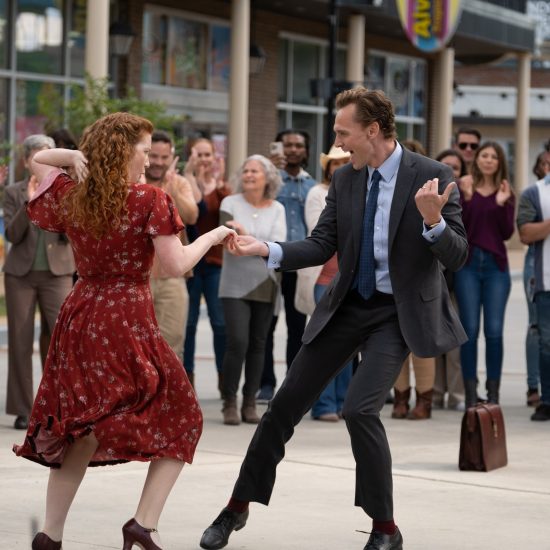
Ted Lasso left the United States behind to coach soccer (or football, if you prefer) in England. But the TV character has a message for the U.S. men’s national soccer team as they compete in the World Cup that starts on Sunday (Nov. 20). Actually, he has many different messages. As the team headed to Qatar to prepare for the quadrennial tournament, billboards appeared in their respective hometowns sharing humorous and encouraging messages from the fictional coach.
In Medford, New Jersey, the old stomping grounds of midfielder Brenden Aaronson, Lasso’s words hung on a barn: “You were barn to play in the games of all games. And you were barn to go all the way. This billboard’s on a barn, right? ‘Cause if not this joke isn’t gonna make sense.”
Out west, Lasso told San Diego, California, native Lucas de la Torre, “I’m no scientist or San Diego-ist, but my studies show this city’s about to crank up the happy once you stroll onto soccer’s biggest stage. You’re gonna give them something to smile about from the top of the podium.”
Players and fans are understandably excited about “the games of all games” and the chance to play on “soccer’s biggest stage.” Other people are less enthusiastic.

Domes featuring different national colors are displayed near the Doha Exhibition and Convention Center in Doha, Qatar, on March 31, 2022. (Darko Bandic/Associated Press)
On Oct. 27, Umesh Kumar Yadav died in a construction accident in Qatar. As tens of thousands of workers reshaped Qatar’s physical infrastructure in preparation for those games, the 32-year-old migrant worker from Nepal was one of thousands who lost their lives in the transformation.
“They told us Umesh was taking the scaffold lift up when it touched something and broke, and he fell down,” Umesh’s cousin Laxman explained to the BBC and corroborated with photo evidence. “They should have checked everything and only then allowed people to work.”
The night before, Umesh sent his family a video of himself dancing in front of buildings bearing advertisements for the World Cup. A young man who worked to make the soccer tournament possible now isn’t alive to see the fruits of his labor.
The Lasso billboards and Umesh’s death reveal a stark contrast between the displays of athletic prowess by players on the field and the often brutal labor conditions of the migrant laborers who spent years readying Qatar to host the games. While the former are celebrated by throngs of fans cheering them on, the latter are mostly forgotten except by their families who live with the lingering suffering and grief.
 In this edition of A Public Witness, we’ll coach you up on the history of the men’s World Cup and the particular details around the 2022 tournament in Qatar that begins in just a few days — and we’ll explain why the penalty cards should come out for these games. Then we ask an important question: Should Christians (and others) watch the contests knowing the blood, sweat, and tears required to make them possible?
In this edition of A Public Witness, we’ll coach you up on the history of the men’s World Cup and the particular details around the 2022 tournament in Qatar that begins in just a few days — and we’ll explain why the penalty cards should come out for these games. Then we ask an important question: Should Christians (and others) watch the contests knowing the blood, sweat, and tears required to make them possible?
The rest of this piece is only available to paid subscribers of the Word&Way e-newsletter A Public Witness. Subscribe today to read this essay and all previous issues, and receive future ones in your inbox.






